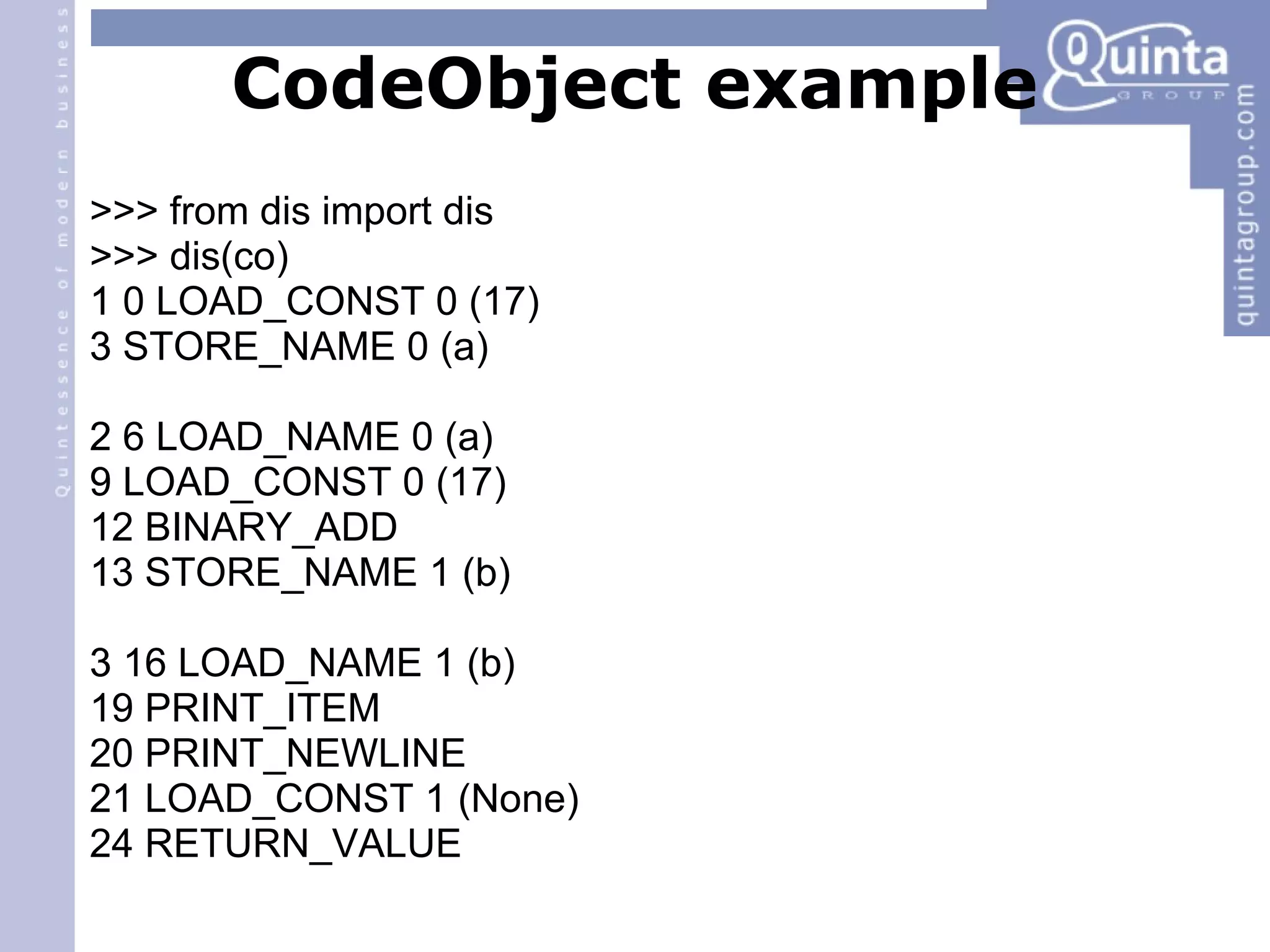- Python uses reference counting and a cyclic garbage collector to manage memory and free objects that are no longer referenced. It allocates memory for objects in blocks and assigns them to size classes based on their size.
- Objects in Python have a type and attributes. They are created via type constructors and can have specific attributes like __dict__, __slots__, and descriptors.
- At the Python virtual machine level, code is represented as code objects that contain details like the bytecode, constants, and variable names. Code objects are compiled from Python source files.
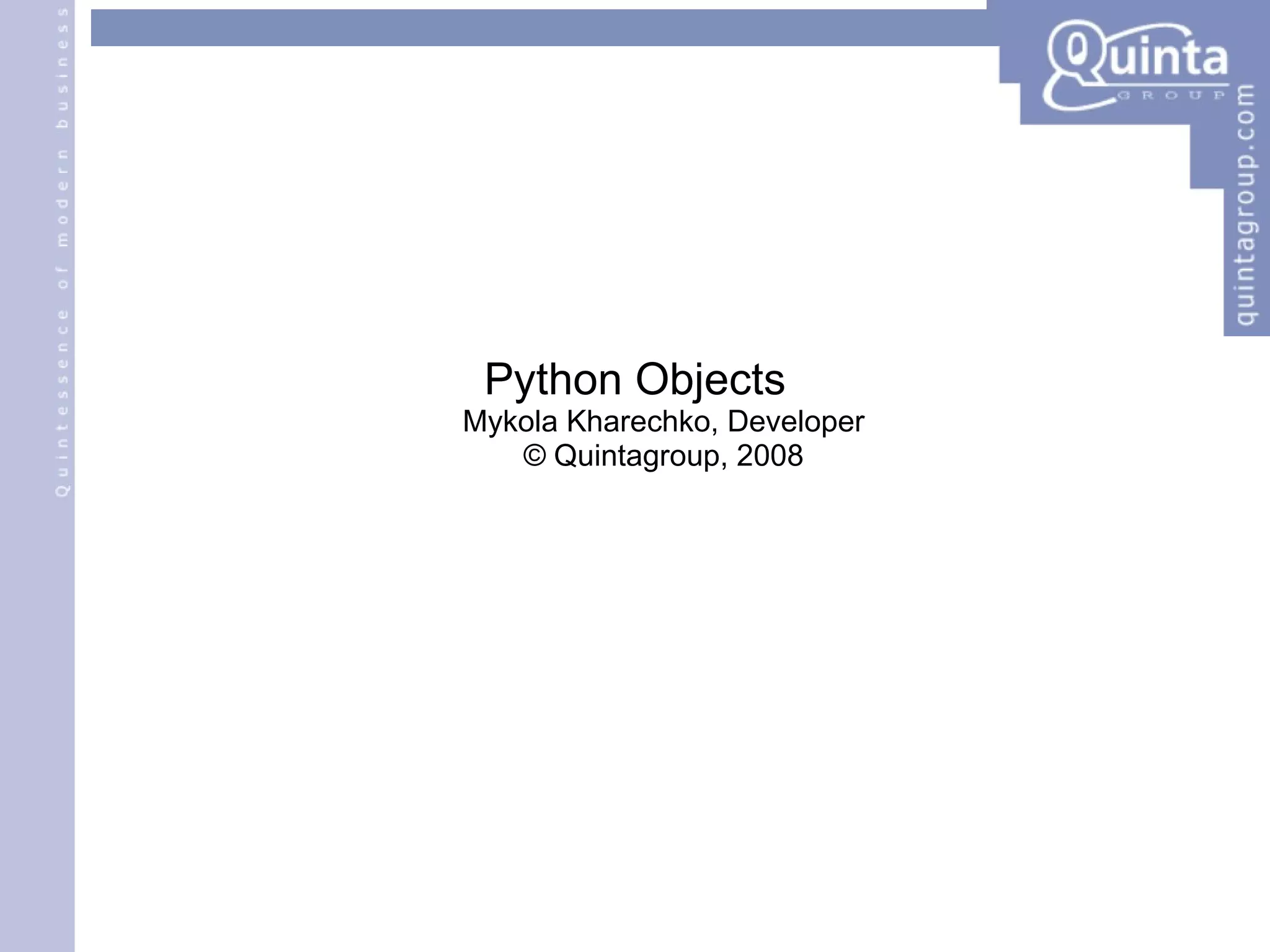
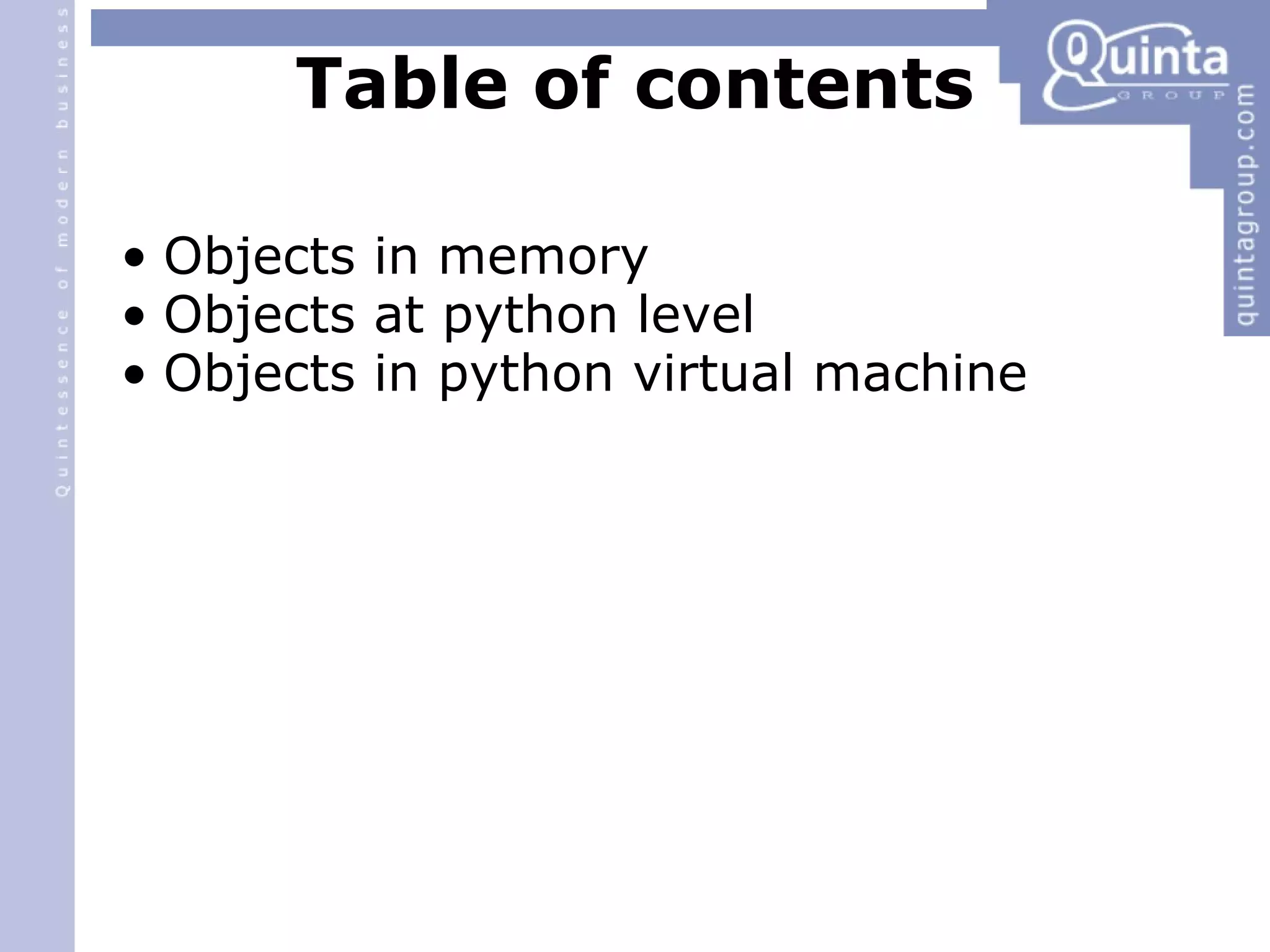
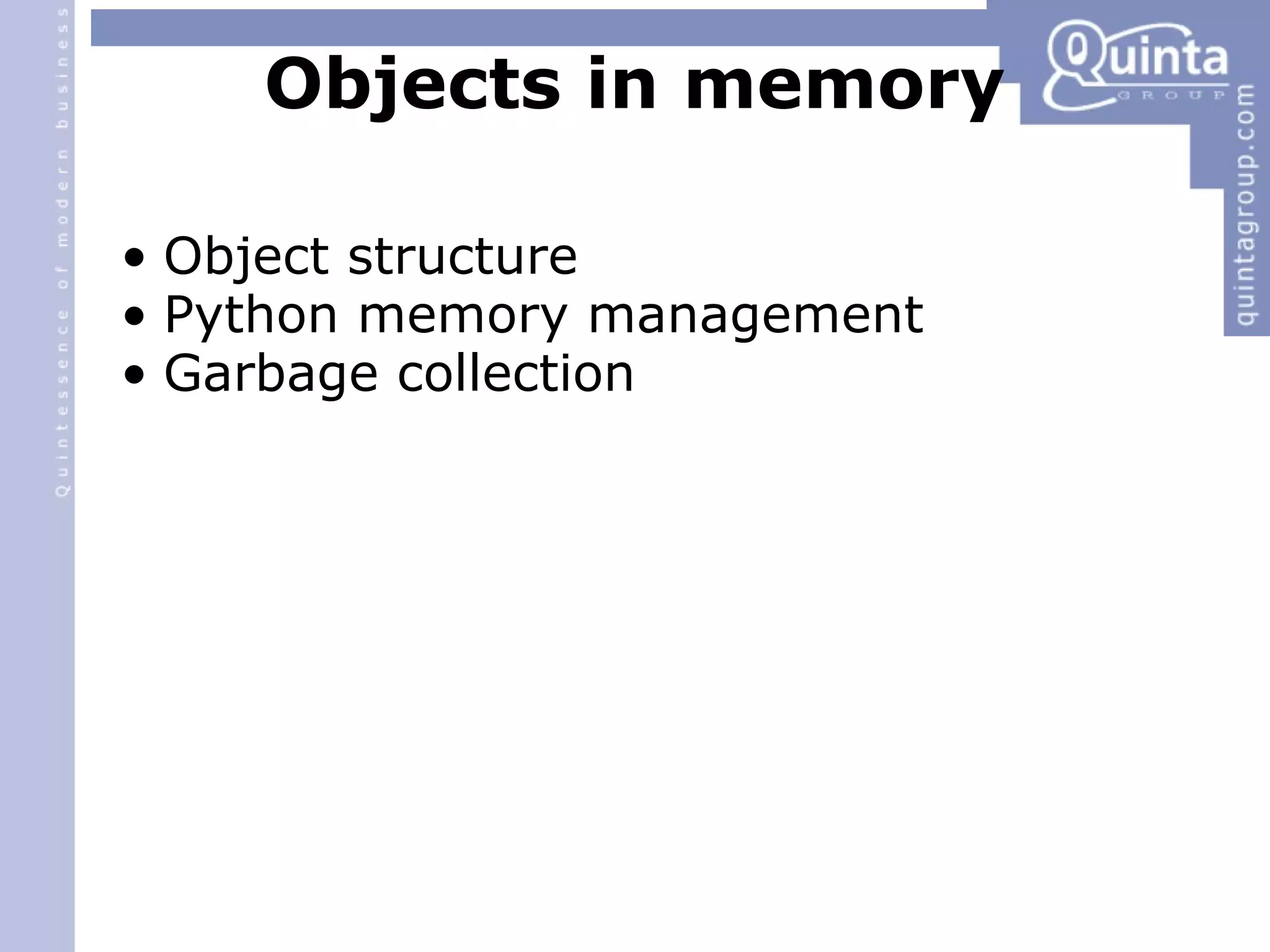
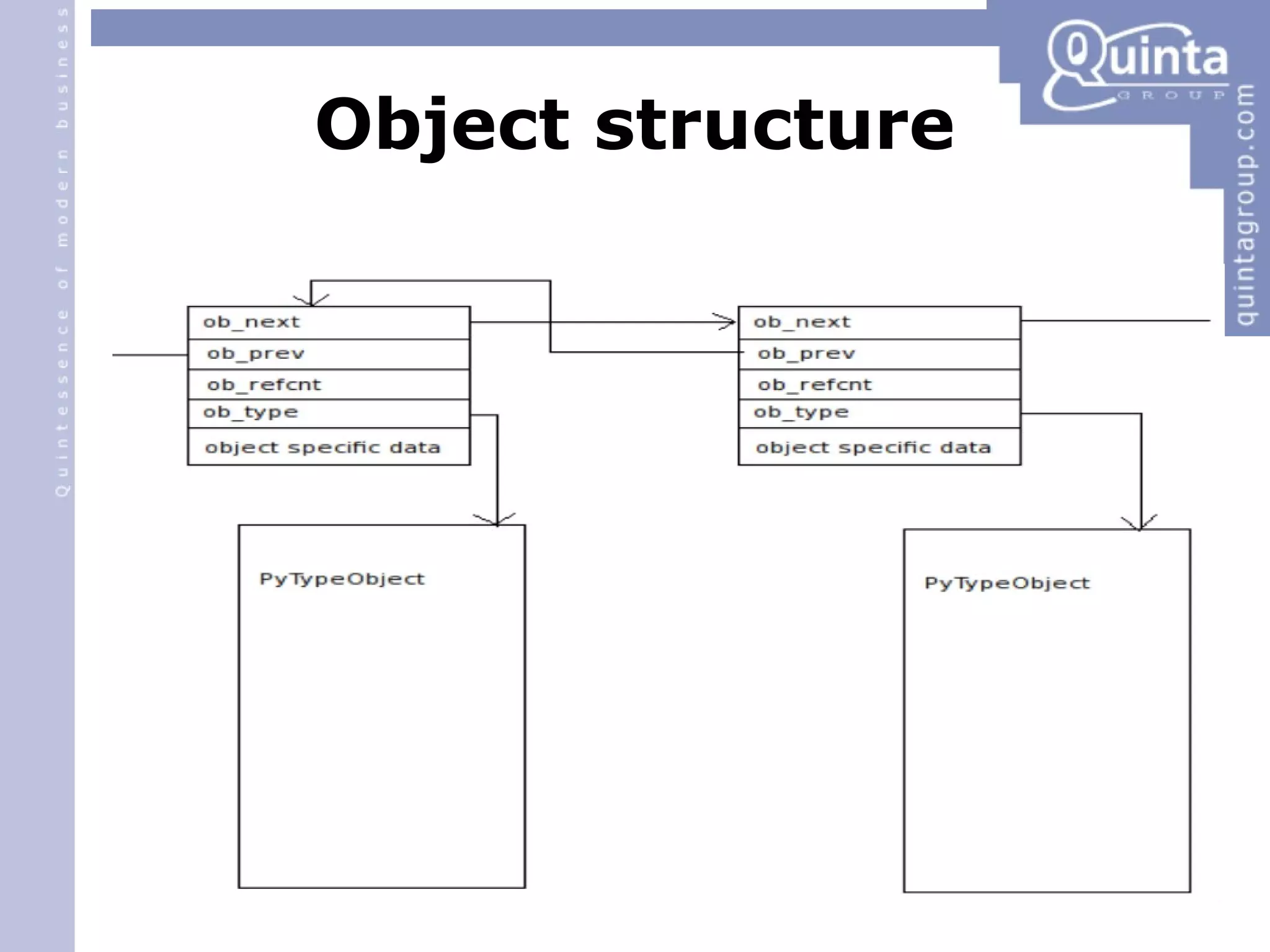
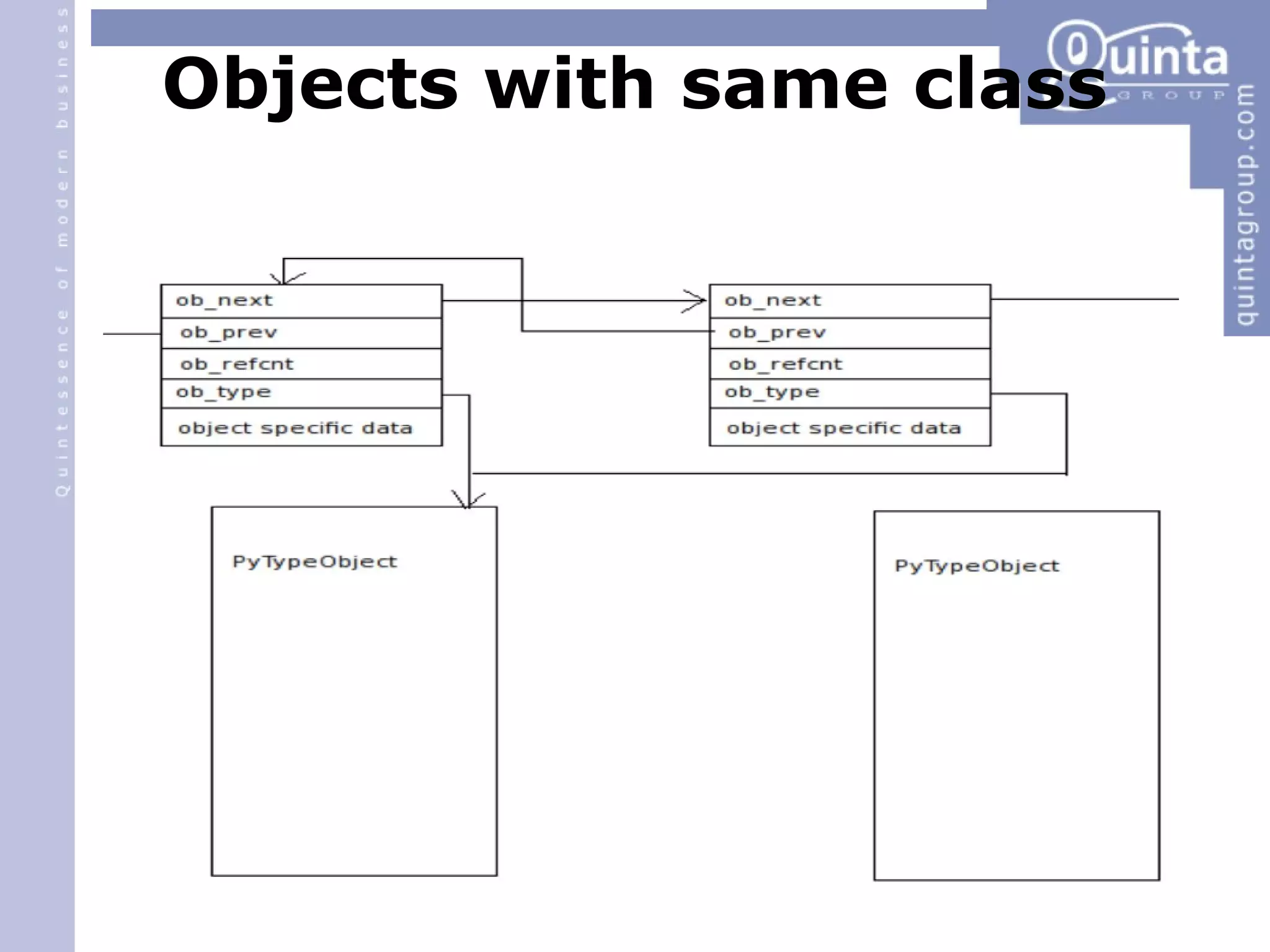
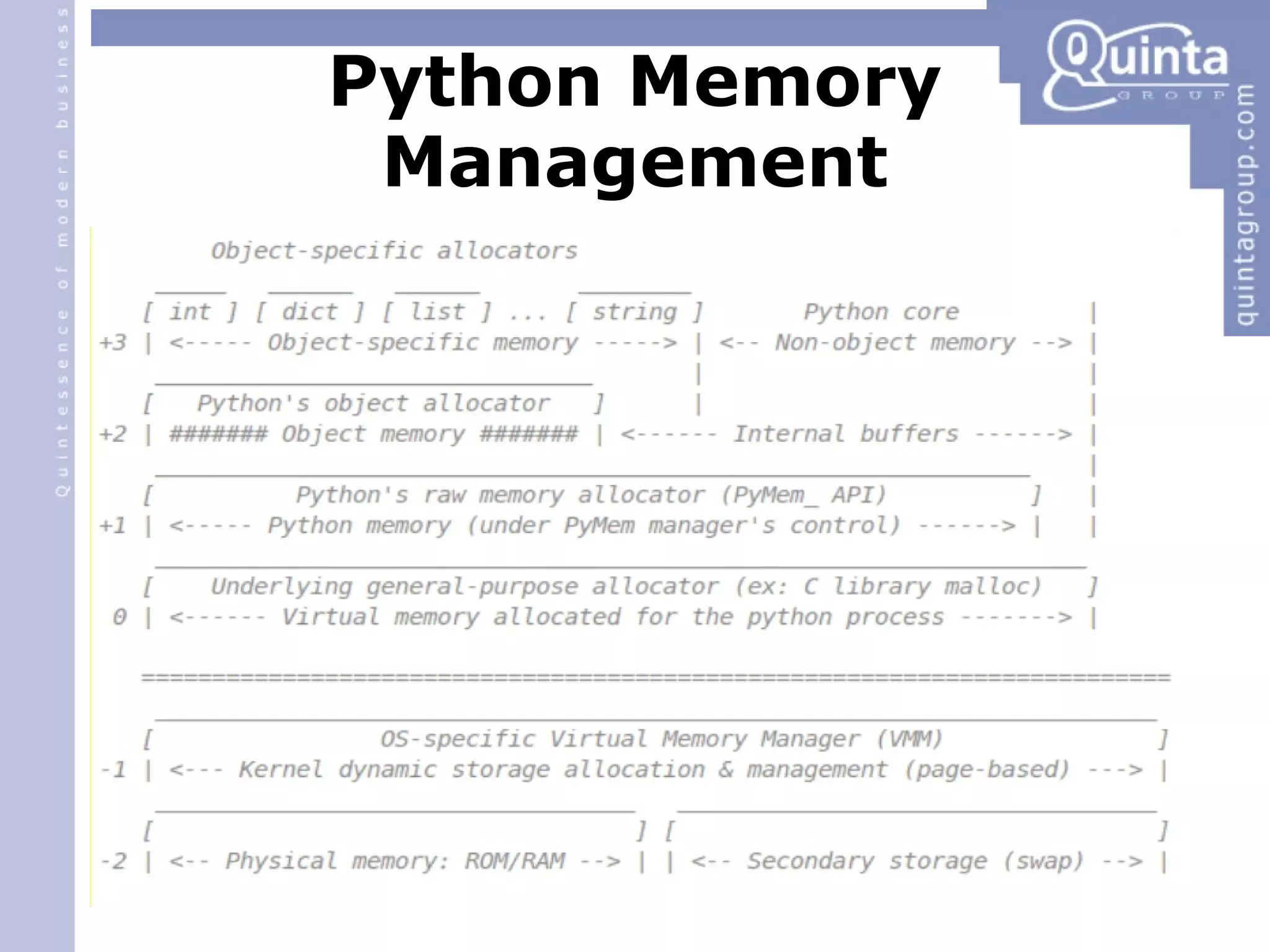

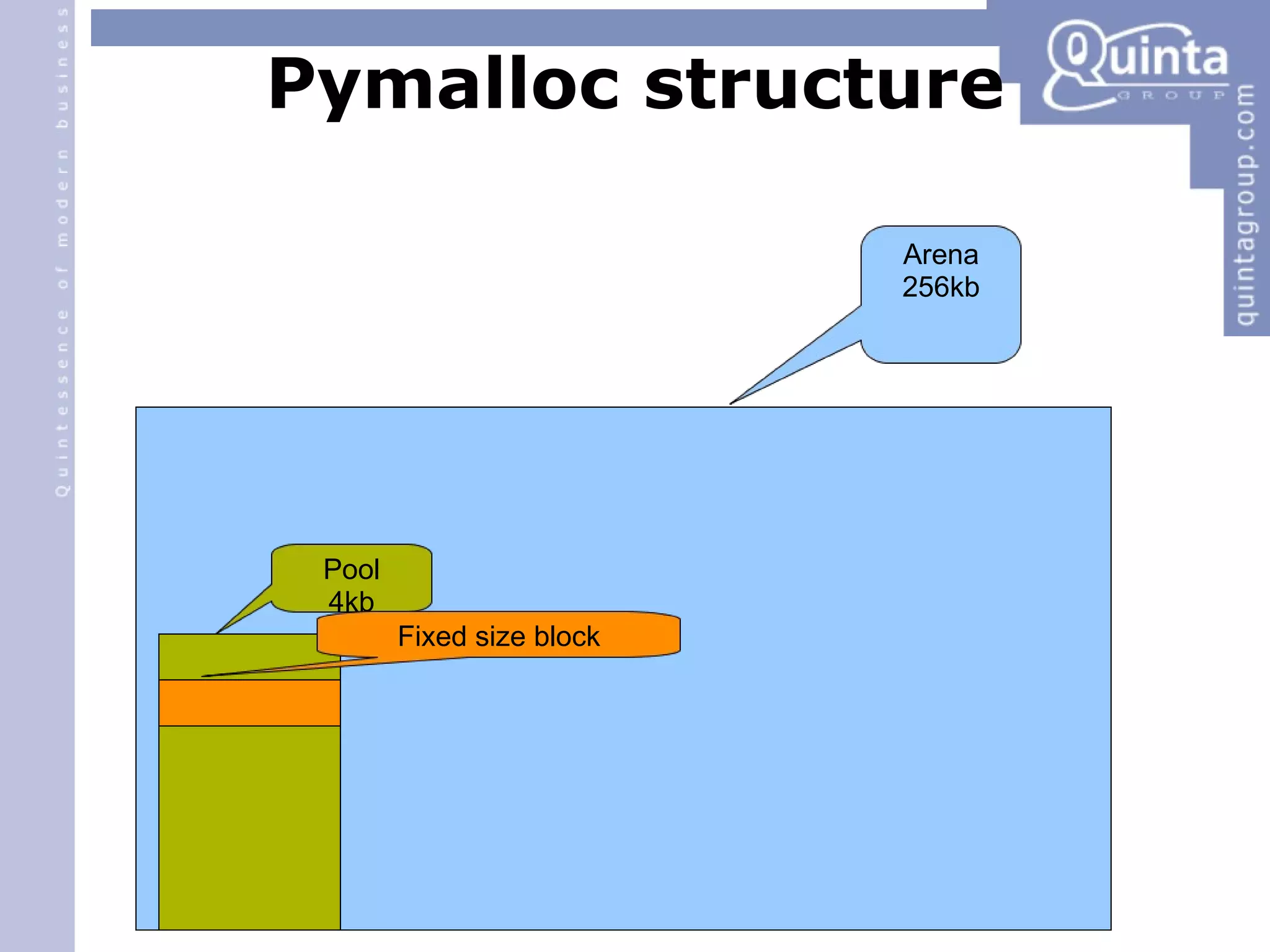
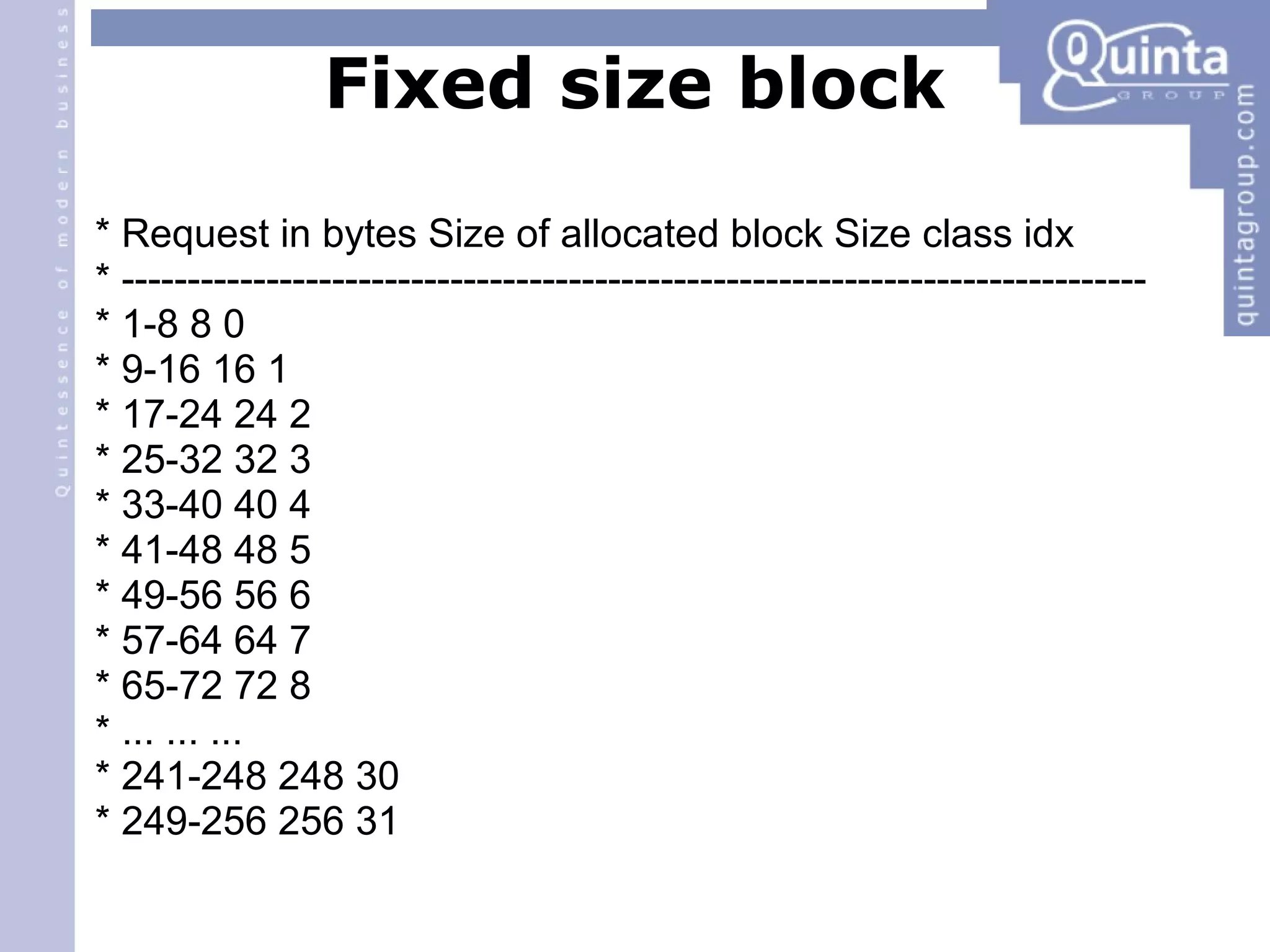
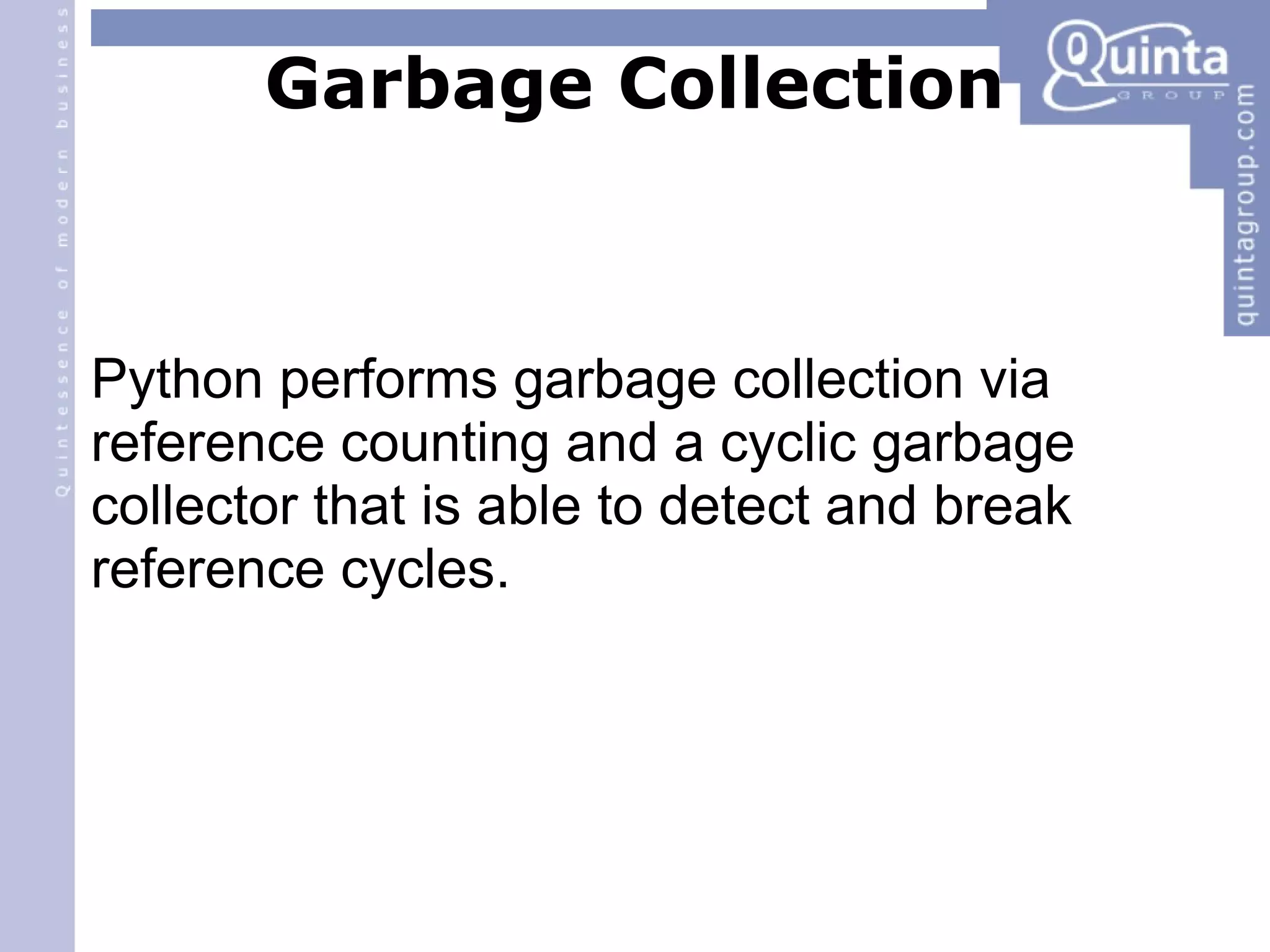
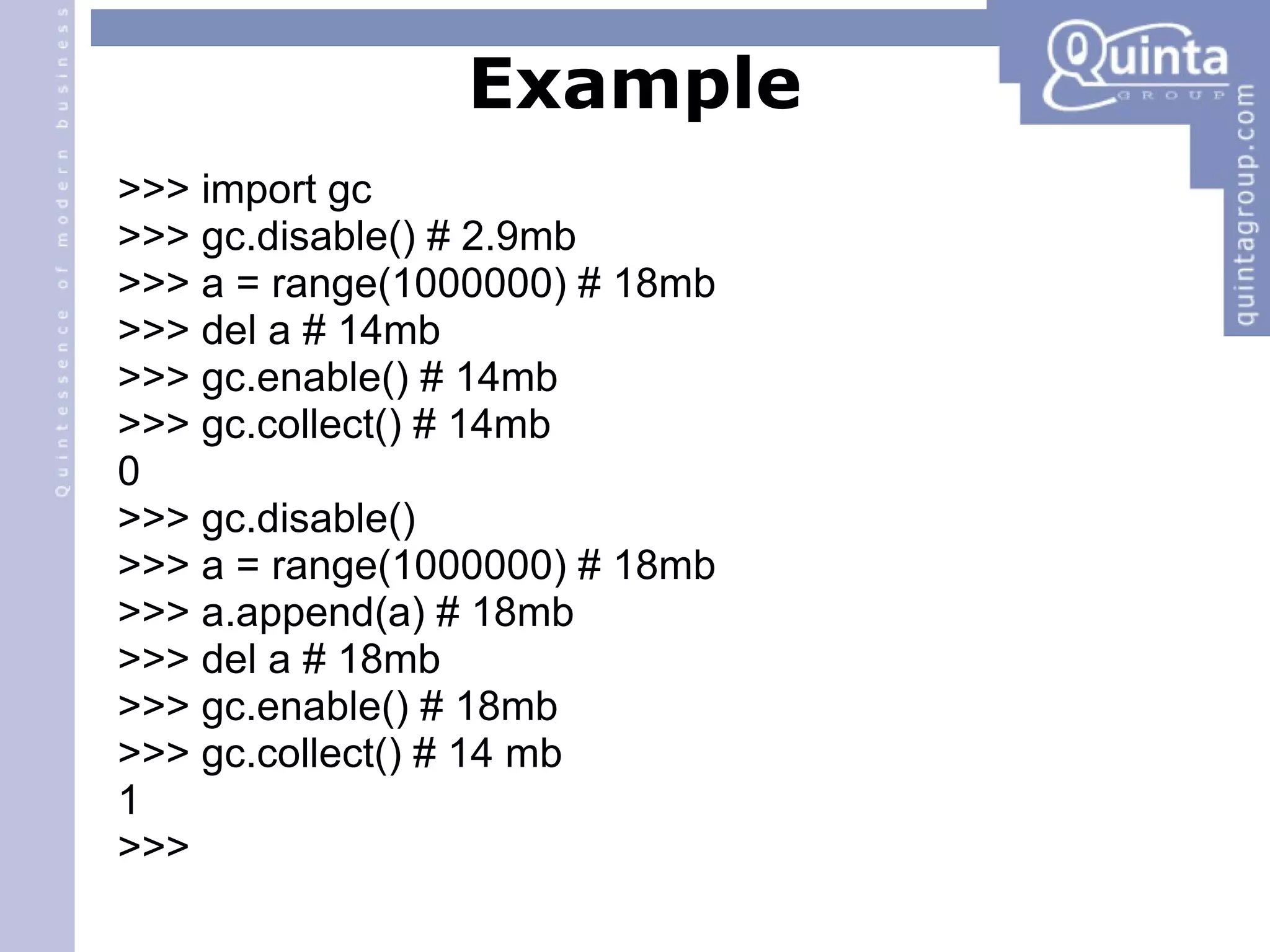
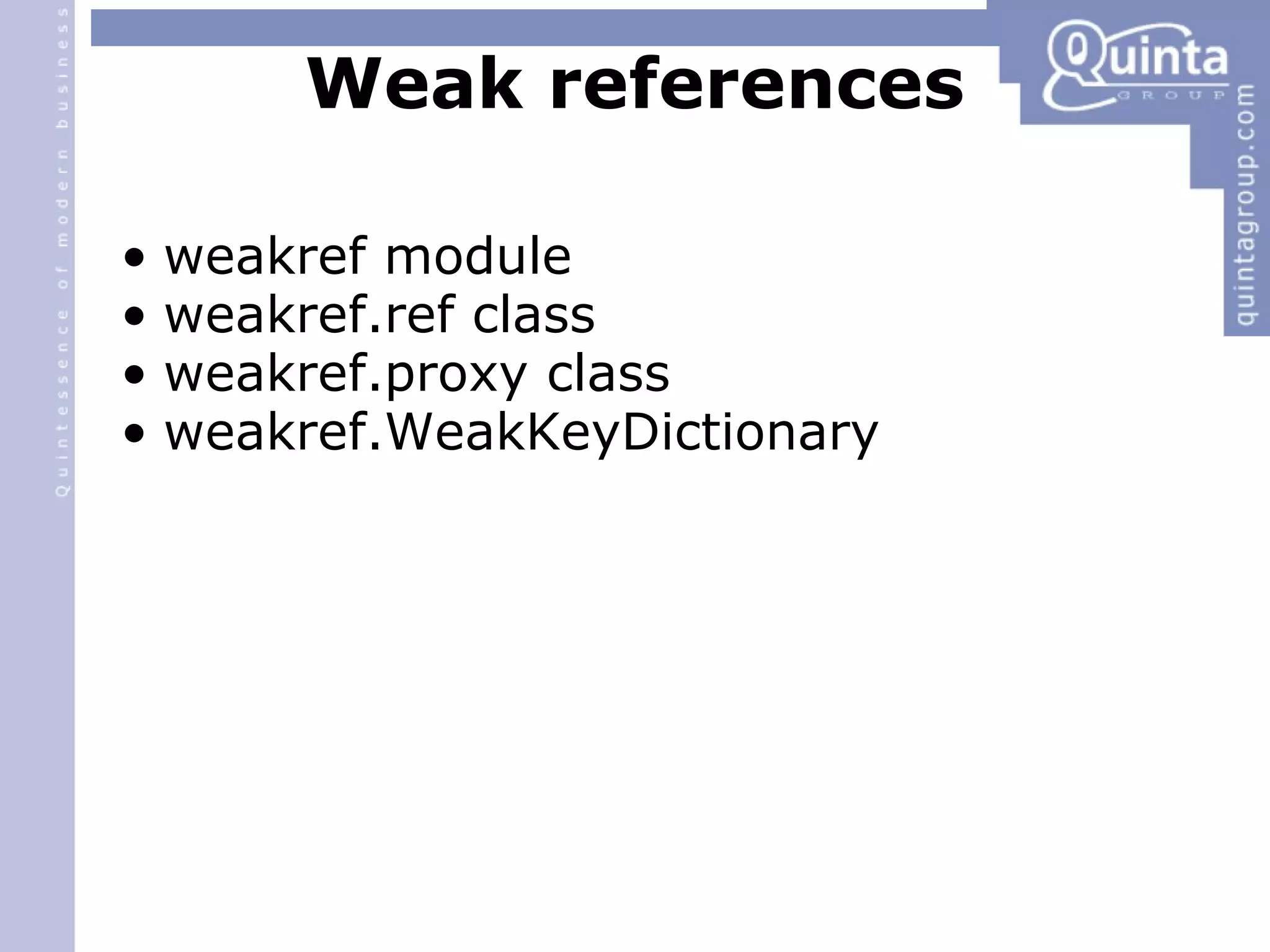
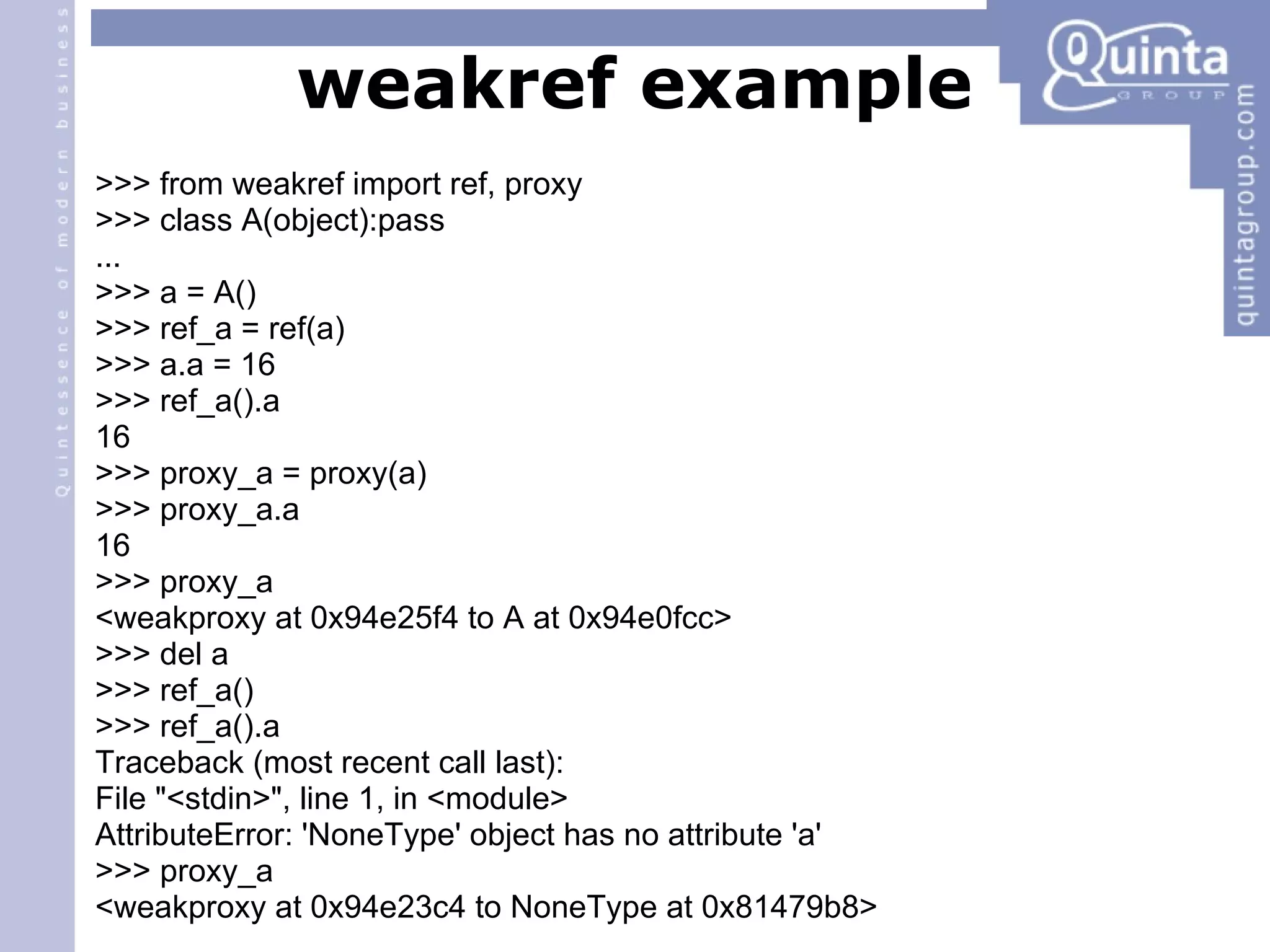
![List object typedef struct { PyObject_VAR_HEAD // ob_size /* Vector of pointers to list elements. list[0] is ob_item[0], etc. */ PyObject **ob_item; // 0 <= ob_size <= allocated // len(list) == ob_size Py_ssize_t allocated; } PyListObject;](https://image.slidesharecdn.com/pythonobjectsreview-090924051356-phpapp01/75/Python-Objects-14-2048.jpg)
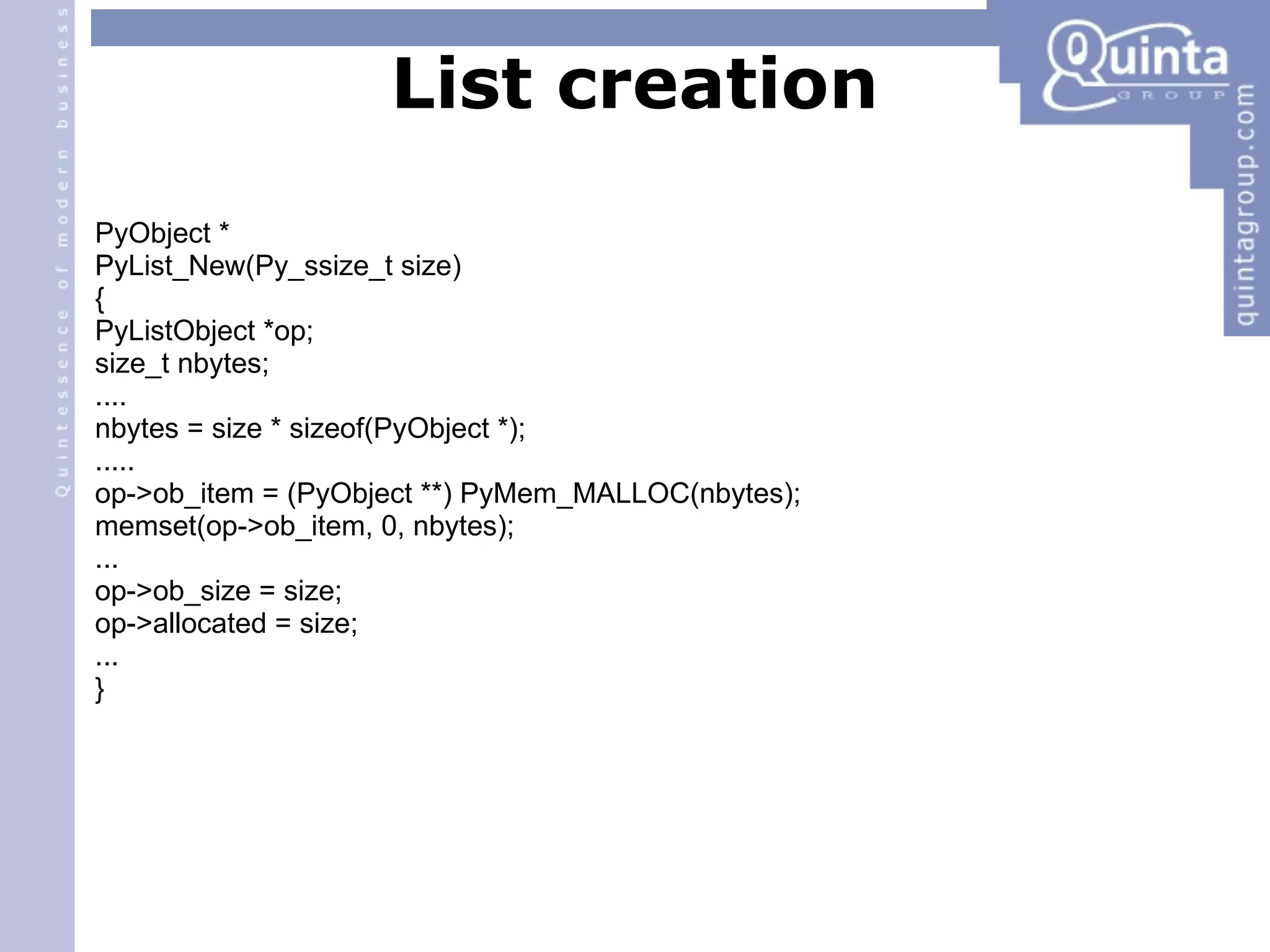
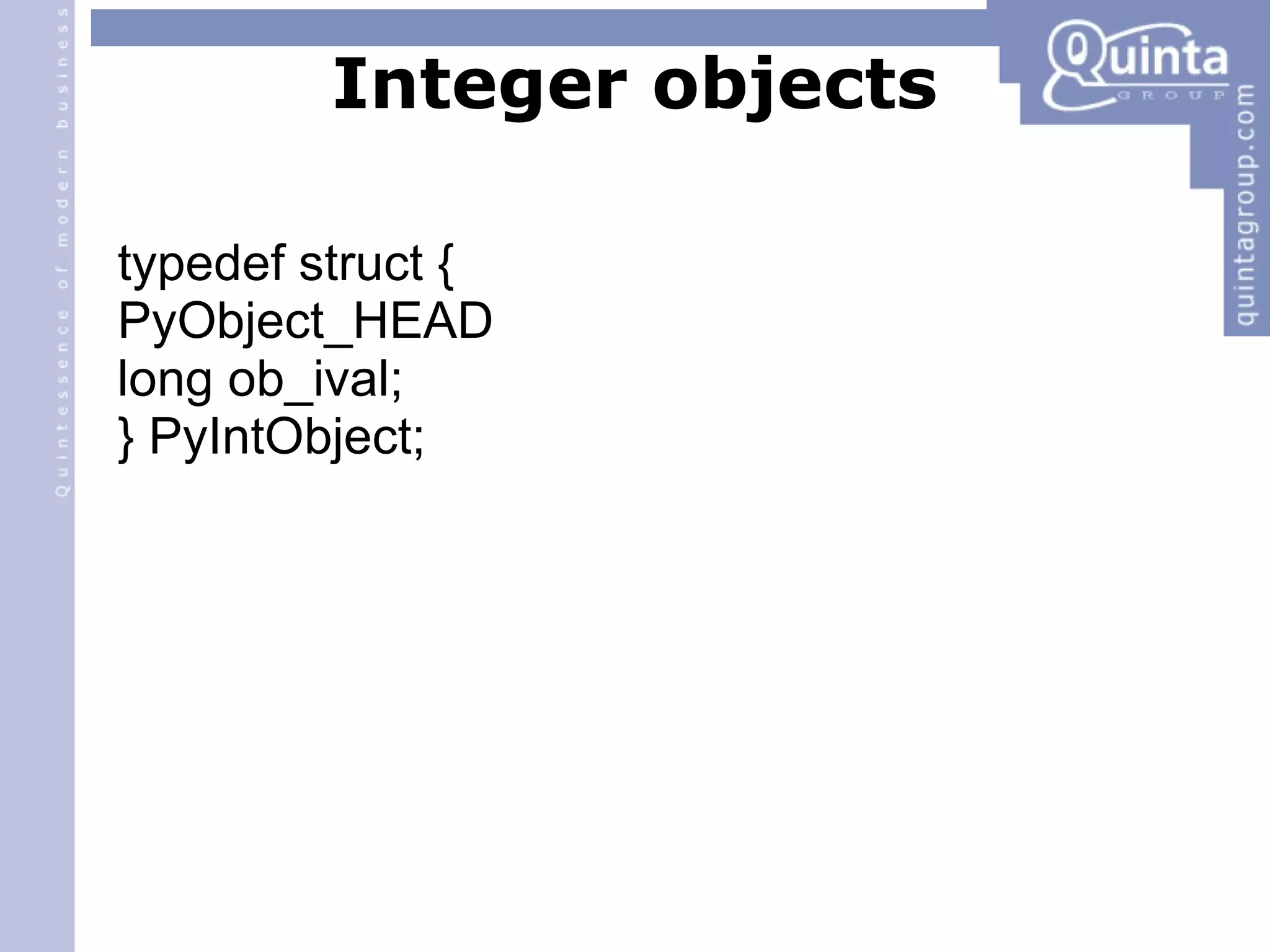
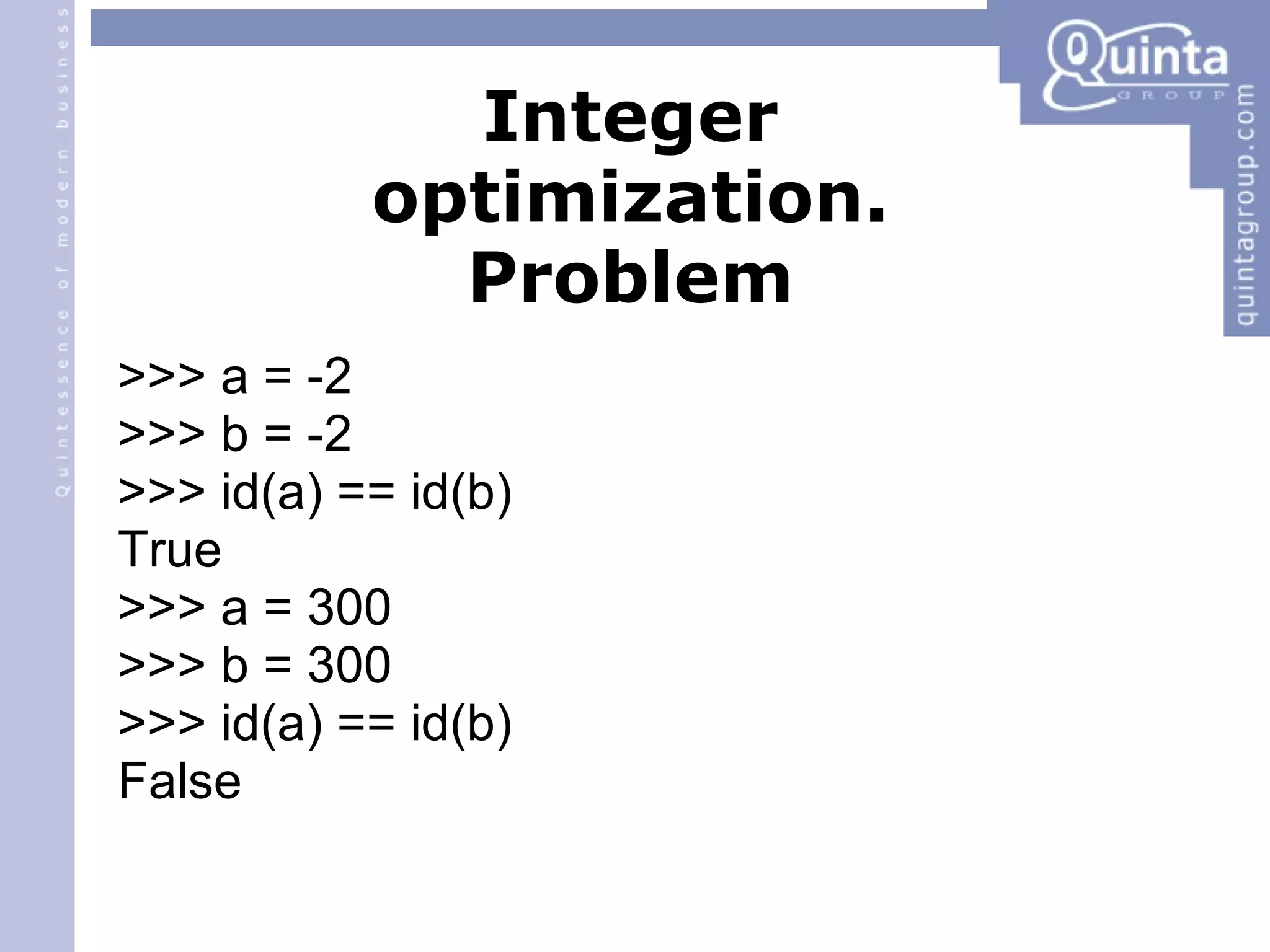
![Integer optimization. Solution #define NSMALLPOSINTS 257 #define NSMALLNEGINTS 5 /* References to small integers are saved in this array so that they can be shared. The integers that are saved are those in the range -NSMALLNEGINTS (inclusive) to NSMALLPOSINTS (not inclusive). */ static PyIntObject * small_ints[NSMALLNEGINTS + NSMALLPOSINTS];](https://image.slidesharecdn.com/pythonobjectsreview-090924051356-phpapp01/75/Python-Objects-18-2048.jpg)
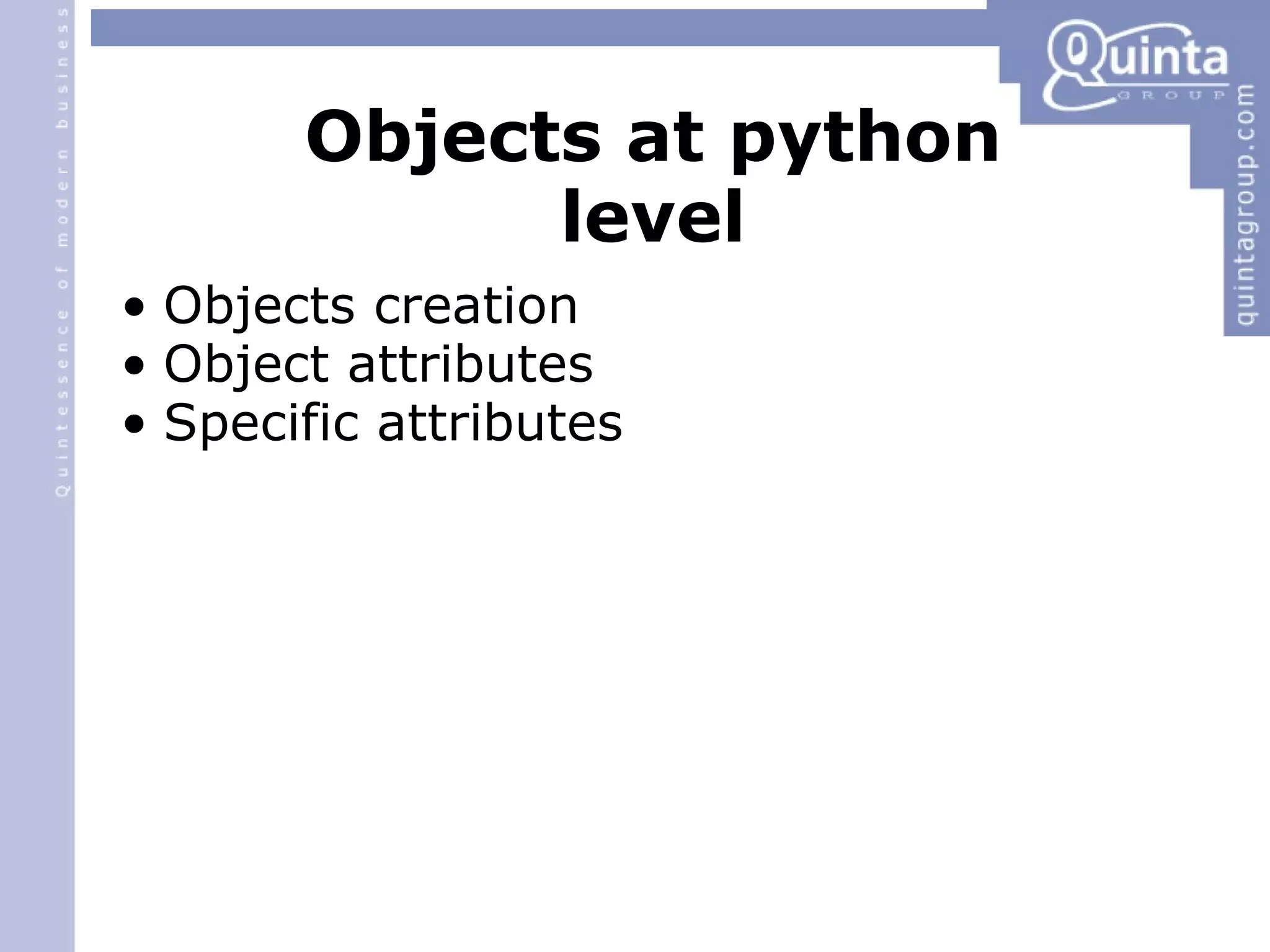
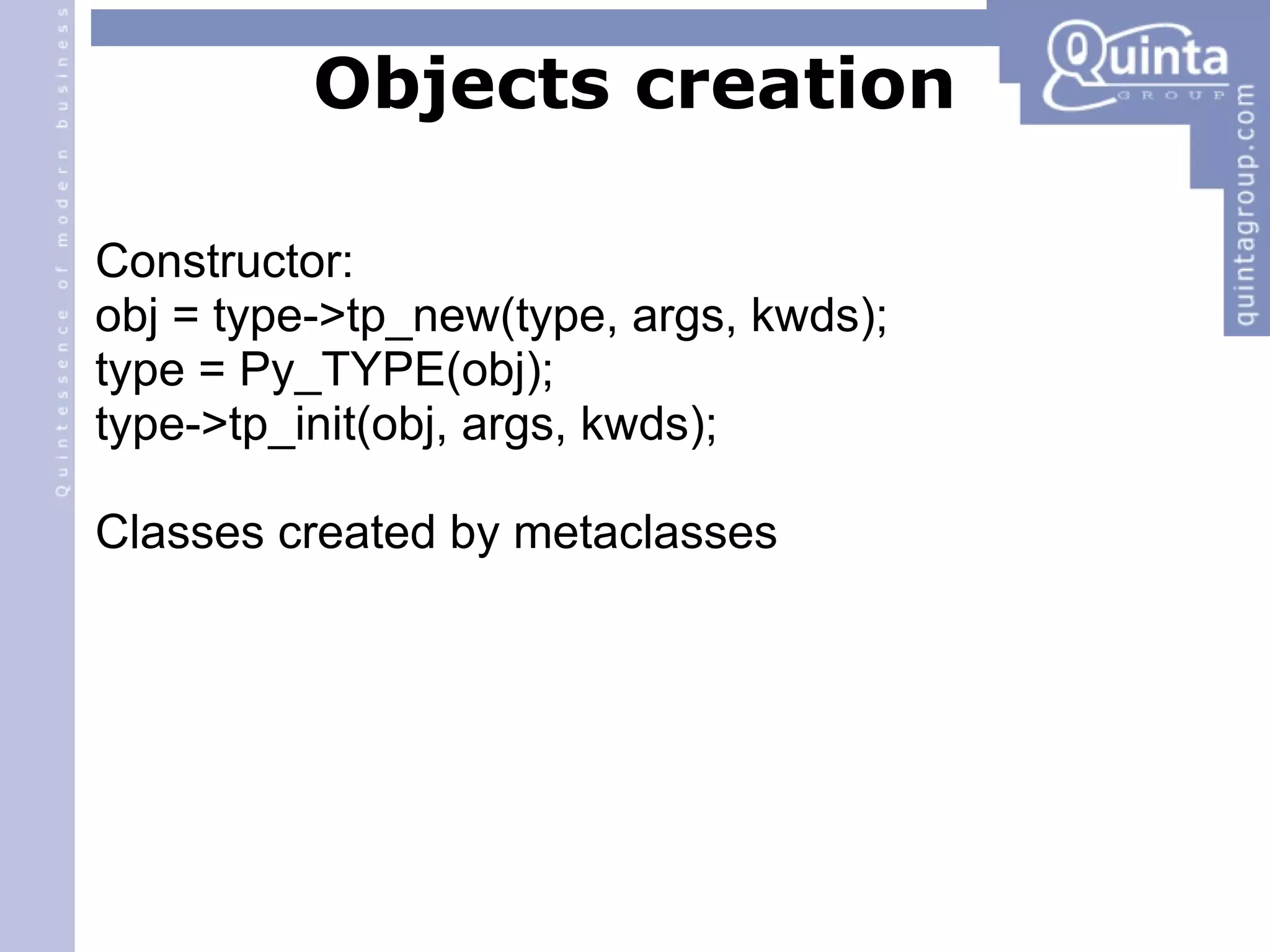
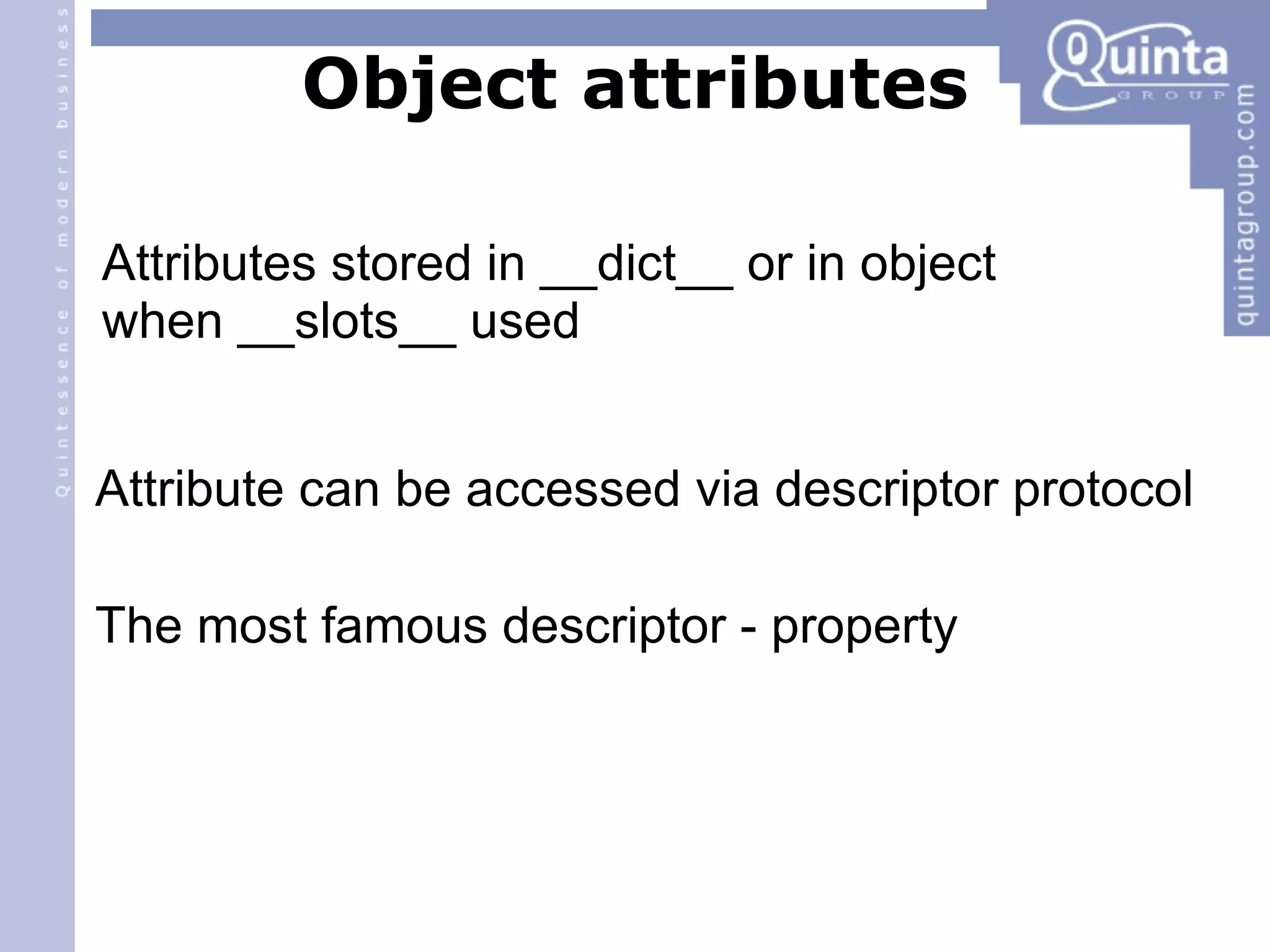
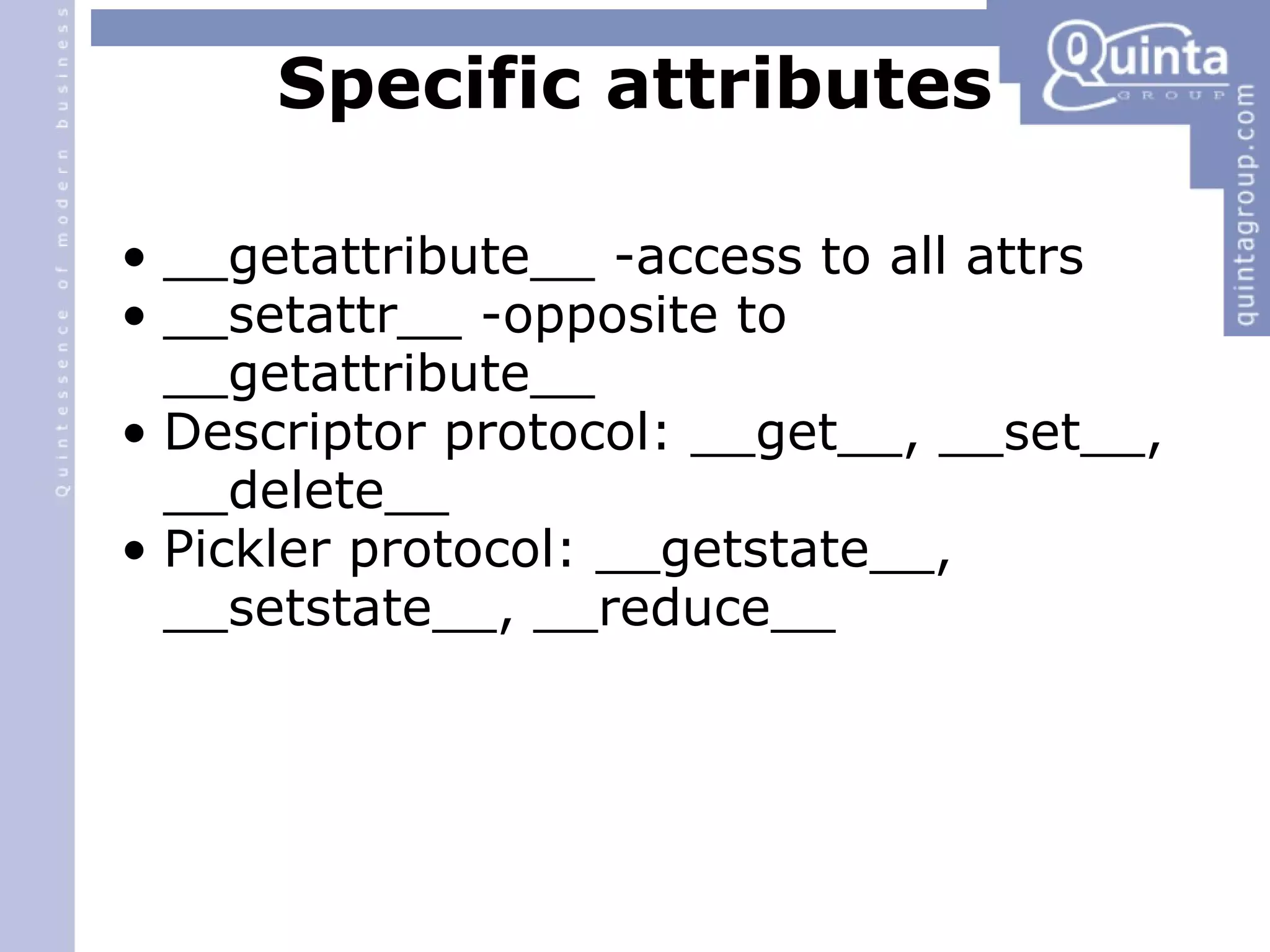
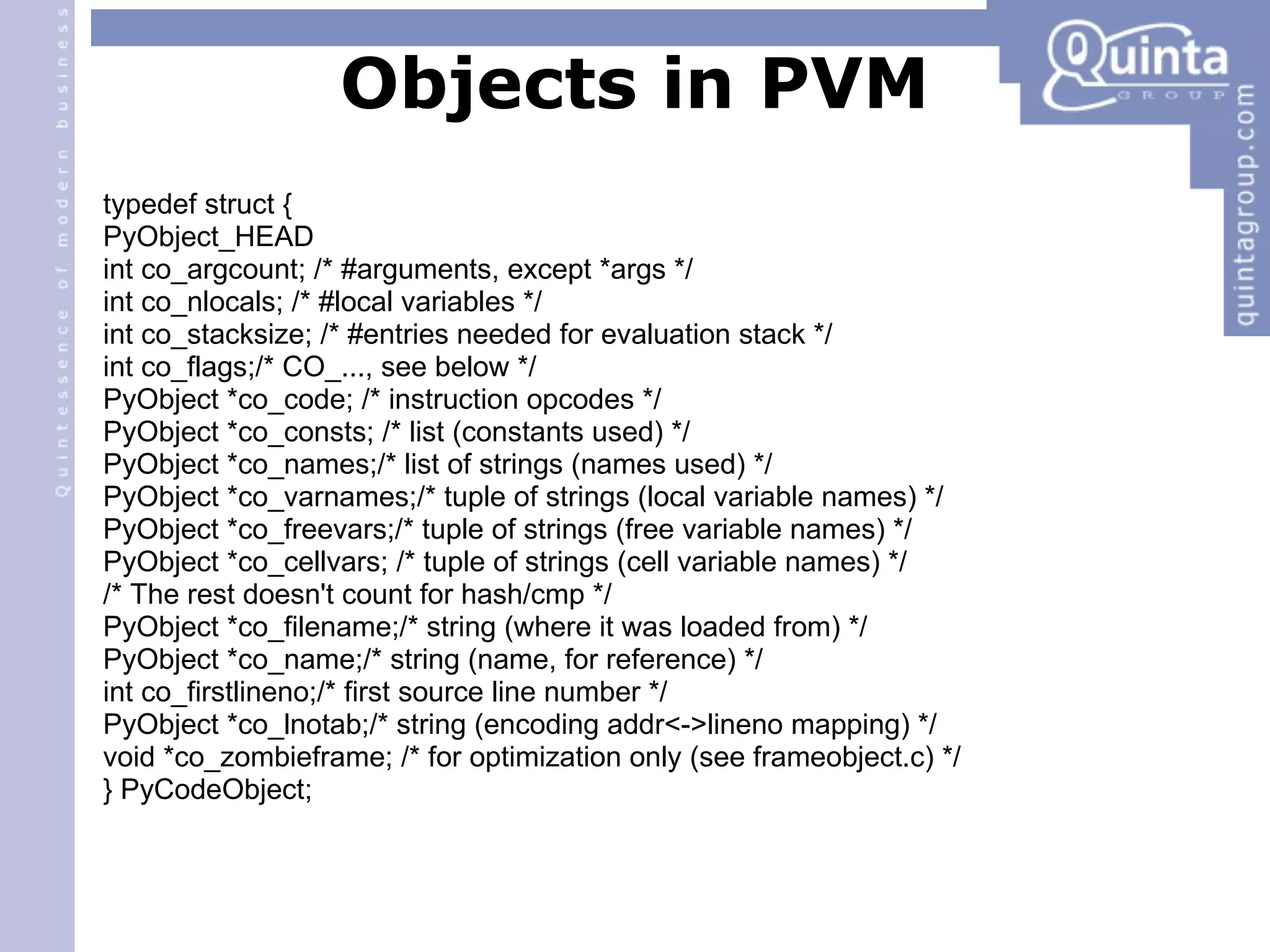
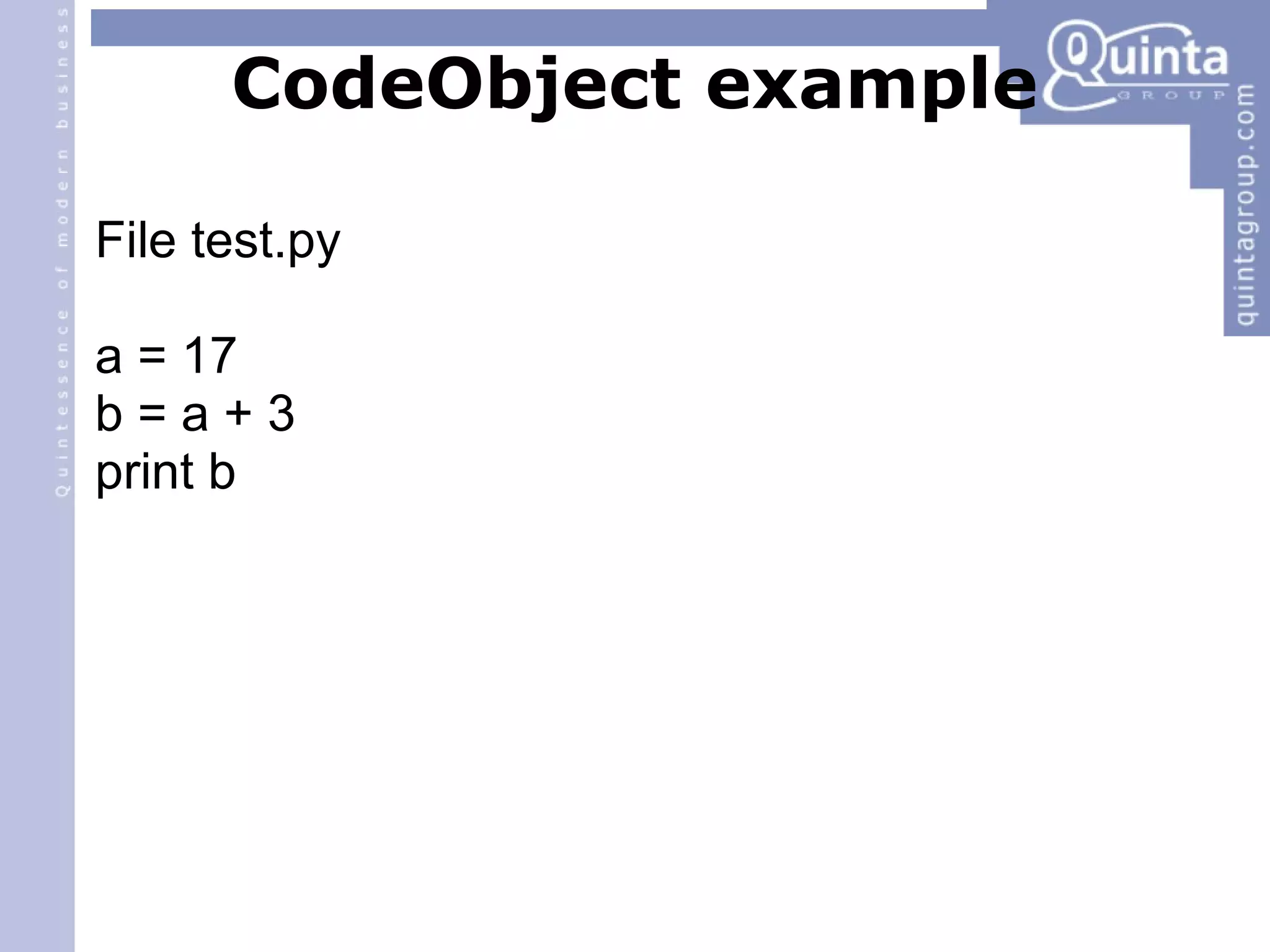
![CodeObject Example >>> import test 34 >>> pyc = open('test.pyc') >>> pyc.read(8) '\xb3\xf2\r\n>C\x8eH' >>> from marshal import load >>> co = load(pyc) >>> dir(co) [... 'co_argcount', 'co_cellvars', 'co_code', 'co_consts', 'co_filename', 'co_firstlineno', 'co_flags', 'co_freevars', 'co_lnotab', 'co_name', 'co_names', 'co_nlocals', 'co_stacksize', 'co_varnames'] >>> co.co_consts (17, None) >>> co.co_names ('a', 'b') ](https://image.slidesharecdn.com/pythonobjectsreview-090924051356-phpapp01/75/Python-Objects-25-2048.jpg)
